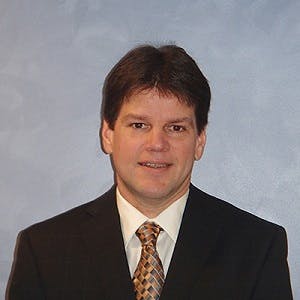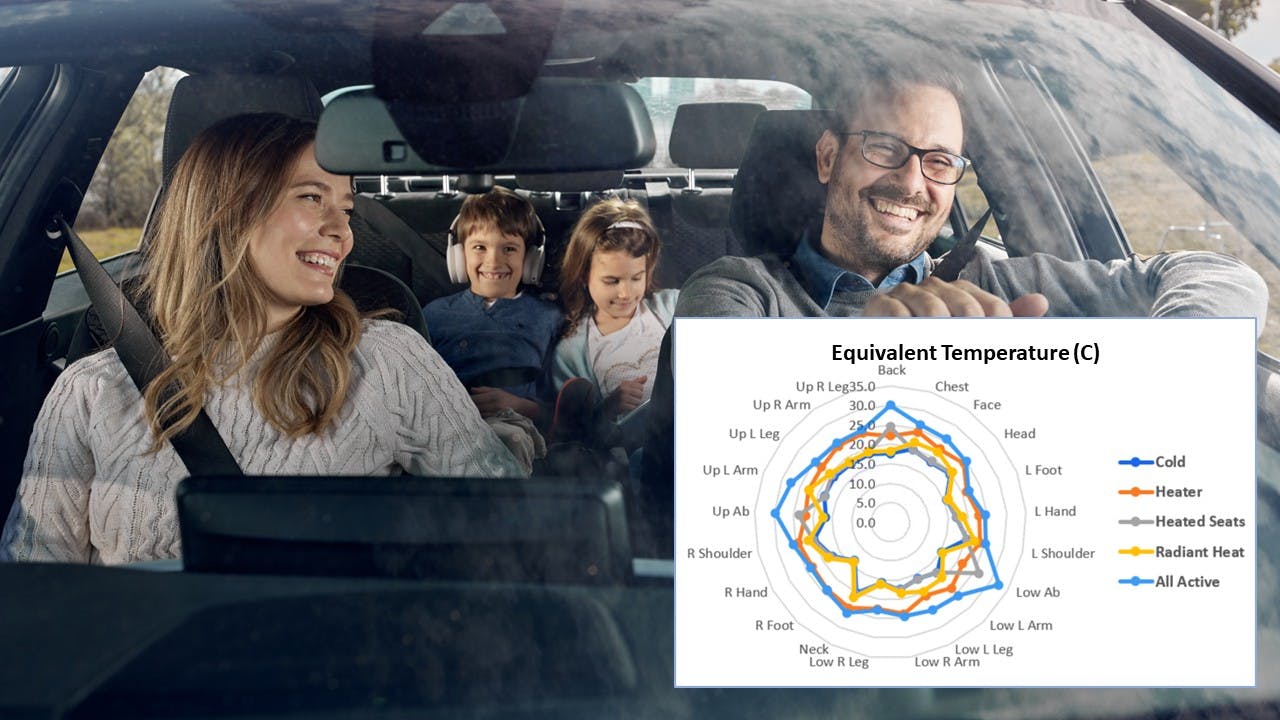Designing HVAC systems for the passenger cabin used to be straightforward, as the heat generated by the internal combustion engine was redirected to the HVAC unit. For electric vehicles, this is an entirely different story. A battery-powered car does not have large amounts of wasted heat to work with. Today, the challenge for thermal engineers is quantifying trade-offs between energy efficiency, passenger comfort, and vehicle performance.
This webinar explains how to capture the local thermal comfort of passengers by combining detailed high-fidelity simulation of passenger comfort with close to real-time simulation to design efficient control systems. Additionally, we demonstrate how to link these models to a system model to understand the overall energy consumption of the HVAC system. Register now!
Register for the webinar and discover an integrated workflow to:
- Design efficient cabin HVAC systems
- Size components such as heat pumps, compressors, heat exchangers and meet cabin cooling requirements
- Calculate passenger thermal comfort using detailed CFD modeling
- Examine local thermal comfort caused by radiant heaters or heated/cooled seats
- Assess energy savings of radiant heaters, heated/cooled seats
- Feed complex 3D CFD simulation into a reduced-order-model (ROM)
認識講者

Fred Ross
Automotive Business Development Manager, Fluids and Thermal Domain
Fred started with computational fluid dynamics back in 1989 to help pioneer the usage of CFD for automotive applications. This includes extensive experience working with customers on applications such as virtual powertrain simulation, vehicle thermal management, aerodynamics, and thermal comfort. He helped replace and complement tests to look at digital development to help reduce time and cost to bring new innovative ideas to the market.

Luca Patricelli
Senior Application Specialist, Simcenter System Simulation
Luca holds a Ph.D. in thermodynamics and specializes in thermal control systems. Starting in 2007, he focused on sizing and performance analysis. Today, he brings 15 years of experience combining simulation with experimental testing. His simulation expertise spans system simulation modeling for fuel systems, oxygen systems, battery cooling, etc., as well as CAE 3D modeling to analyze slosh, ditching, avionic bay thermal management, etc. In 2022, Luca joined the Product Management Team of Simcenter Amesim as Senior Application Specialist for thermal control.
